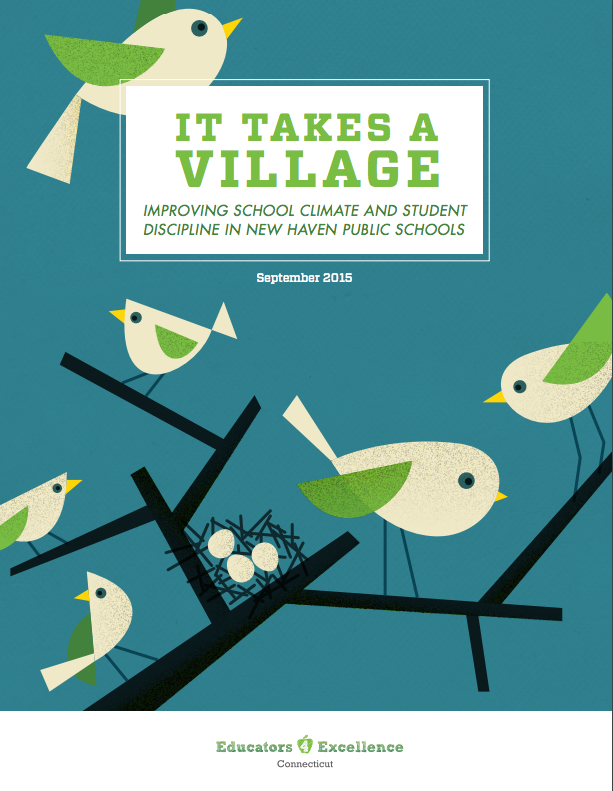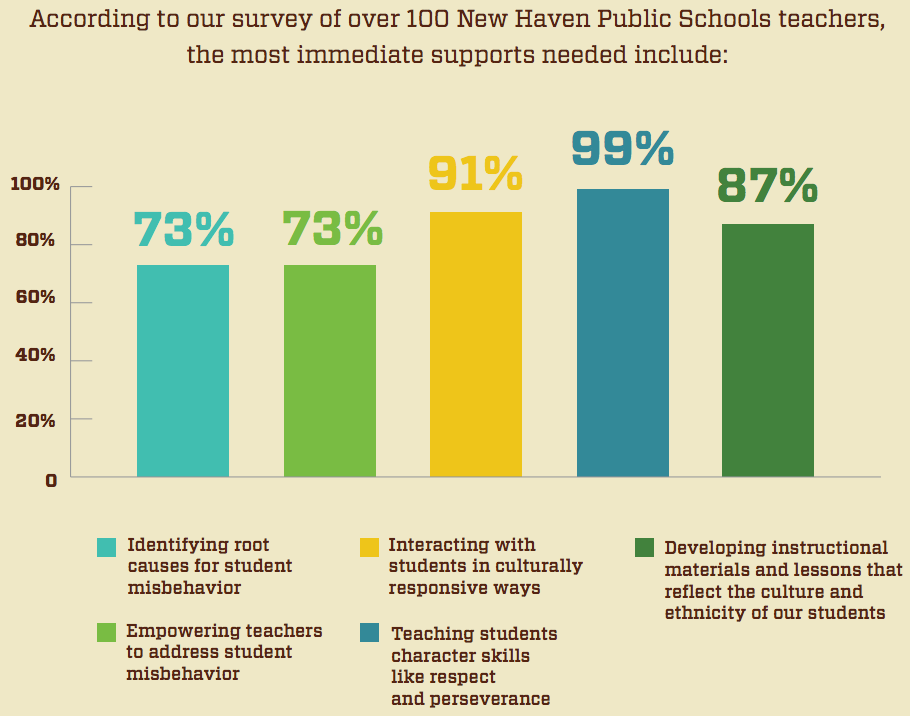
It Takes a Village
Improving School Climate and Student Discipline in New Haven Public Schools
September 2015

Studies confirm what we know from experience: school climate—or a student’s learning environment—has a dramatic impact on student academic performance. Research also confirms that students need to be in school to learn. Exclusionary practices like suspensions, expulsions, and in-school arrests occur all too often across the district. In a single school year, 2,762 unique disciplinary incidents were reported in New Haven, resulting in students spending an alarming 15,145 days out of the classroom. During the 2012-13 school year in New Haven, a school district serving predominantly Black and Latino students, the district handed out nearly 2,000 out-of-school suspensions in a population of approximately 21,183 students. A few miles away in Madison, a predominately white school district, the district handed out only 42 out-of-school suspensions in a population of approximately 3,300 students.

As teachers, we are encouraged by the steps being taken by our district, New Haven Public Schools (NHPS), which have led to a reduction in the use of exclusionary discipline practices since the 2008-09 school year. However, there is still significant room for improvement. Though NHPS has identified school climate as a priority, systems to support and improve school climate are not yet fully integrated into all district practices. Teachers are not fully equipped with the tools they need to effectively prevent and respond to student misbehavior. As a result, unmet student needs create a cycle of student misbehavior and discipline removals, which leave students feeling unwelcome, isolated and academically behind.

Recommendations:
-
Foster healthy school climates and a proactive and supportive approach to school discipline throughout NHPS.
-
Redesign district professional development and support system to make healthy school climate and restorative discipline a priority.
-
Invest in student empowerment programs, additional student supports and opportunities to celebrate success on school discipline and climate.
- Develop district-wide systems to better facilitate communication between parents and teachers, and to promote deep parent engagement and welcoming school environments.
About the Teacher Action Team
We are a diverse group of eight teachers from New Haven who met for six weeks to review research on school climate and discipline. When developing our policy recommendations, we conducted interviews, held focus groups, surveyed colleagues, and participated in a panel discussion with parent leaders in the district.
Caroline Apgar Middle School English Language Arts Teacher and Restorative Practices Representative at Mauro-Sheridan Science, Technology, and Communications Interdistrict Magnet School
Donna Bartling Middle School Mathematics Teacher at L.W. Beecher Museum School
Matt Erickson Mentor Science Teacher for New Haven Public Schools
Zach Kafoglis Elementary Bilingual Education Teacher at Fair Haven School
Eva Landau Elementary School Teacher and Student Support Facilitator at Mauro-Sheridan Science, Technology, and Communications Interdistrict Magnet School
Sandra Luu Talented and Gifted Teacher for New Haven Public Schools
Keeler Otero Middle School Science Teacher at Christopher Columbus Family Academy
Saad Qureshi High School Science Teacher at Metropolitan Business Academy